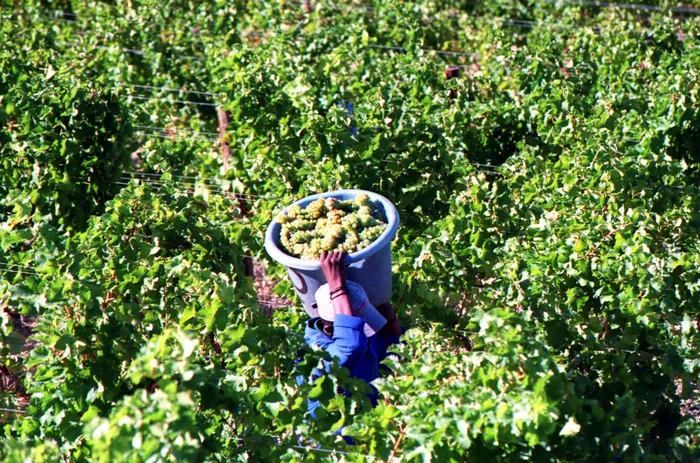South African agriculture poised to weather Trump's tariff storm
AGRICULTURE

A report by the Brenthurst Foundation indicates that South African agriculture can navigate the proposed tariffs by US President Donald Trump.
Image: Denzil Maregele/Independent Newspapers
In a recently published report by the Brenthurst Foundation, South African agriculture is depicted as resilient enough to navigate the challenges posed by the proposed tariffs from US President Donald Trump.
Led by Wandile Sihlobo, chief economist of the Agricultural Business Chamber of South Africa (Agbiz), and Tinashe Kapuya, a specialist in agricultural trade, the analysis asserts that with the right measures, South Africa can counteract the shock waves from this geo-economic upheaval.
The report said that from a South African perspective, the upheaval of the global geo-economic and political landscape created heightened uncertainty, which demands a set of interventions that can effectively reduce risk, preserve economic interests, and continue to grow the country's economy through its export-led strategy.
The report added that over the past two and a half decades, South Africa has enjoyed duty-free, quota-free market access into the US under the African Growth Opportunity Act (Agoa) preference programme.
“The Trump tariffs abruptly ended Agoa by introducing tariffs that will likely have some profound and long-term implications for South Africa and other markets globally. The new tariffs, previously set at 31%, but now temporarily set at 10% for 90 days, present greater urgency to the need for export diversification.”
The report said that South Africa's agricultural exports of $13.7 billion in 2024, the US accounted for 4% of South Africa's agricultural exports.
“The biggest agricultural exports to the US are citrus, wine, grapes, and nuts. These typically entered the US market duty-free and now fall under the tariff level of 10% and 31%, which Washington has levied on South Africa. However, the latest 90-day tariff pause announced by President Trump, barring the 10% baseline that remains in place, provides a temporary reprieve and room for deeper trade negotiations.”
The report added that the ministers of International Relations and Cooperation and Trade, Industry and Competition said in a statement after Washington's move: Efforts will intensify to diversify export destinations, targeting markets across Africa, as well as in Asia, Europe, the Middle East, and the Americas.
The report said that sectors such as citrus, grapes, wine, and nuts, among other products, will be critical in providing the impact on incomes, jobs, and supply chains, in South Africa, as well as the US.
The report calls for an earnest governmental response to advancing negotiations surrounding tariff reductions and technical barriers. Addressing misconceptions about technical regulations is essential to convey to the US that such measures are rooted in food health protocols rather than as barriers to trade.
Moreover, the report said it was crucial to assess why current market conditions have been perceived as suboptimal to formulate effective trade strategies going forward.
It added that in the long term, the government, together with its Southern African Customs Union (SACU) and Southern African Development Community (SADC) partners, now needed to urgently lay out a framework for a reciprocal trade agreement with the US.
“It seems, for all practical intents and purposes, that this round of tariffs by the Trump Administration signals the end to the US Preference Programmes – including Generalised Scheme of Partners (GSP) and Agoa.”
Francois Rossouw, CEO of Southern African Agri Initiative (Saai), said that South African agriculture has always been vulnerable to external shocks, and the Trump administration’s new tariffs were a stark reminder of how quickly trade conditions can change.
“We believe that protecting the interests of family farmers means we must urgently focus on diversifying our export markets while working closely with the government to preserve existing trade relationships,” he said.
“In the short term, it’s critical that South Africa negotiates exemptions or favourable quotas to maintain access to the US market, particularly for key exports like citrus, wine, nuts, and grapes.
Rossouw added that in the long run, we need to lessen our dependency on any single export destination by building stronger trade ties with Asia, the Middle East, and other parts of Africa.”
“Saai supports a pragmatic, multi-market approach that keeps South African products competitive globally while also prioritising logistical improvements, such as ports and transport infrastructure, so that family farmers can reliably access international markets.”
BUSINESS REPORT